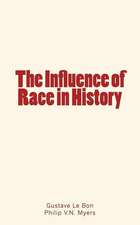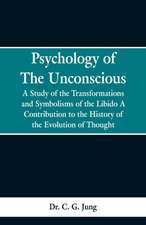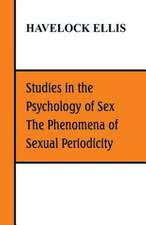The Psychology of Revolution
Autor Gustave Le Bon Traducere de Bernard Miallen Limba Engleză Paperback
| Toate formatele și edițiile | Preț | Express |
|---|---|---|
| Paperback (7) | 104.10 lei 6-8 săpt. | |
| – | 111.14 lei 3-5 săpt. | |
| CREATESPACE – | 119.95 lei 3-5 săpt. | |
| Bottom of the Hill Publishing – 31 dec 2014 | 121.13 lei 3-5 săpt. | |
| Alpha Editions – 27 ian 2018 | 104.10 lei 6-8 săpt. | |
| Blurb – 2 apr 2023 | 135.14 lei 6-8 săpt. | |
| CreateSpace Independent Publishing Platform – | 158.03 lei 6-8 săpt. | |
| TREDITION CLASSICS – 31 ian 2013 | 223.88 lei 6-8 săpt. | |
| Hardback (1) | 337.76 lei 6-8 săpt. | |
| TREDITION CLASSICS – 20 feb 2013 | 337.76 lei 6-8 săpt. |
Preț: 111.14 lei
Nou
Puncte Express: 167
Preț estimativ în valută:
21.27€ • 22.28$ • 17.63£
21.27€ • 22.28$ • 17.63£
Carte disponibilă
Livrare economică 18 martie-01 aprilie
Preluare comenzi: 021 569.72.76
Specificații
ISBN-13: 9781541149731
ISBN-10: 1541149734
Pagini: 366
Dimensiuni: 152 x 229 x 19 mm
Greutate: 0.49 kg
Ediția:Text mare
ISBN-10: 1541149734
Pagini: 366
Dimensiuni: 152 x 229 x 19 mm
Greutate: 0.49 kg
Ediția:Text mare
Notă biografică
Gustave Le Bon (May 7, 1841-Dec. 13, 1931) was born in France. He was a French social psychologist and is most famous for his study of the psychological characteristics of crowds. After being rewarded with a doctorate in medicine, Le Bon went to Europe, North Africa, and Asia and wrote many books on anthropology and archaeology. His interests turned toward natural science and social psychology. In Les Lois's psychologiques de l'évolution des peuples (1894), he improved a view that history is the product of culture or national character, with feelings, not intelligence. Le Bon accepted that modern life was progressively described by crowd assemblages. In La Psychologie des Foules (1895), (The Crowd), his most famous work, he argued that the mindful personality of the person in a crowd is immersed and that the collective crowd mind rules; crowd behavior is united, emotional, or psychologically weak.
Descriere
Descriere de la o altă ediție sau format:
The present age is not merely an epoch of discovery; it is also a period of revision of the various elements of knowledge. Having recognised that there are no phenomena of which the first cause is still accessible, science has resumed the examination of her ancient certitudes, and has proved their fragility. To-day she sees her ancient principles vanishing one by one. Mechanics is losing its axioms, and matter, formerly the eternal substratum of the worlds, becomes a simple aggregate of ephemeral forces in transitory condensation.




















